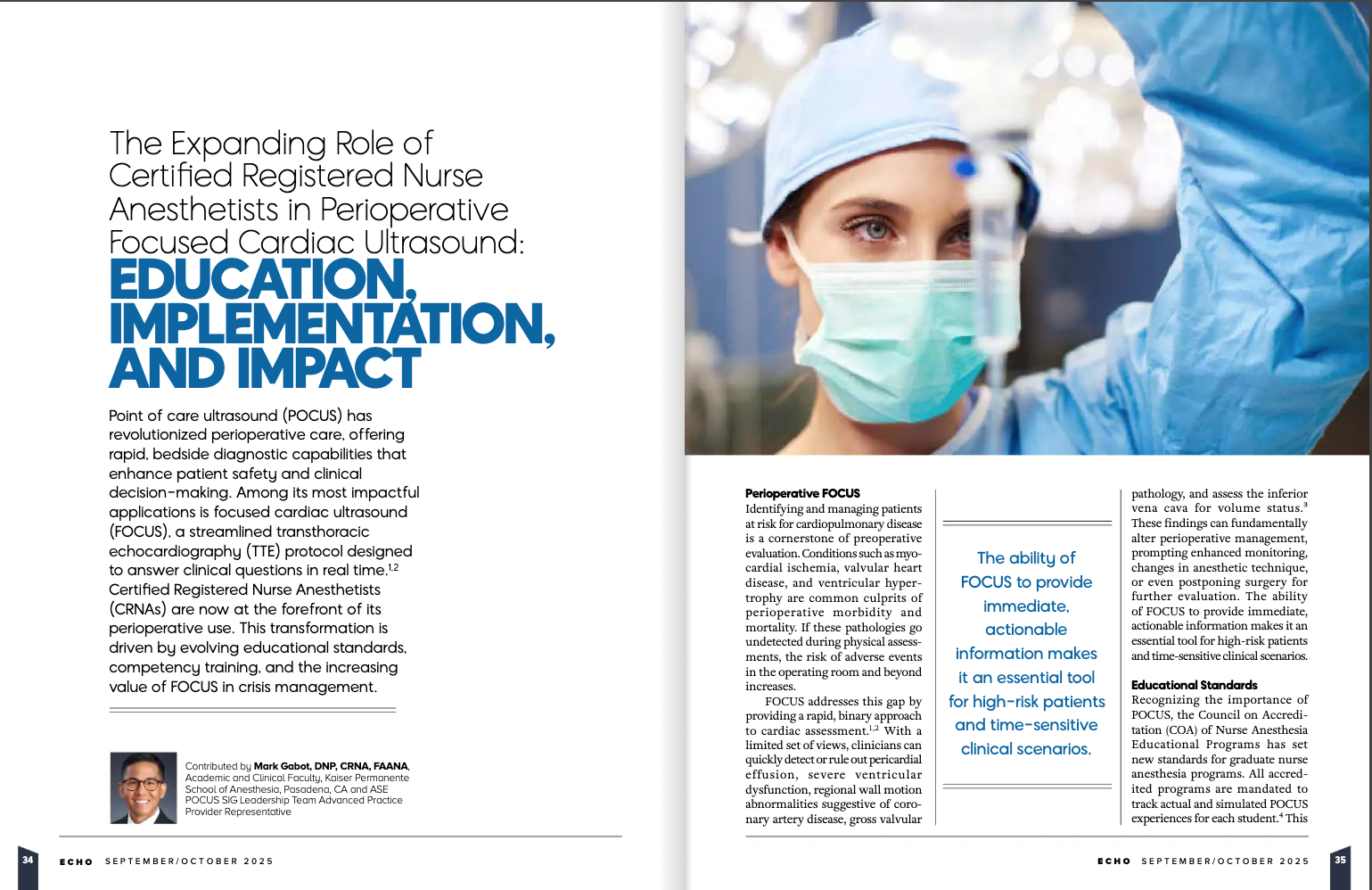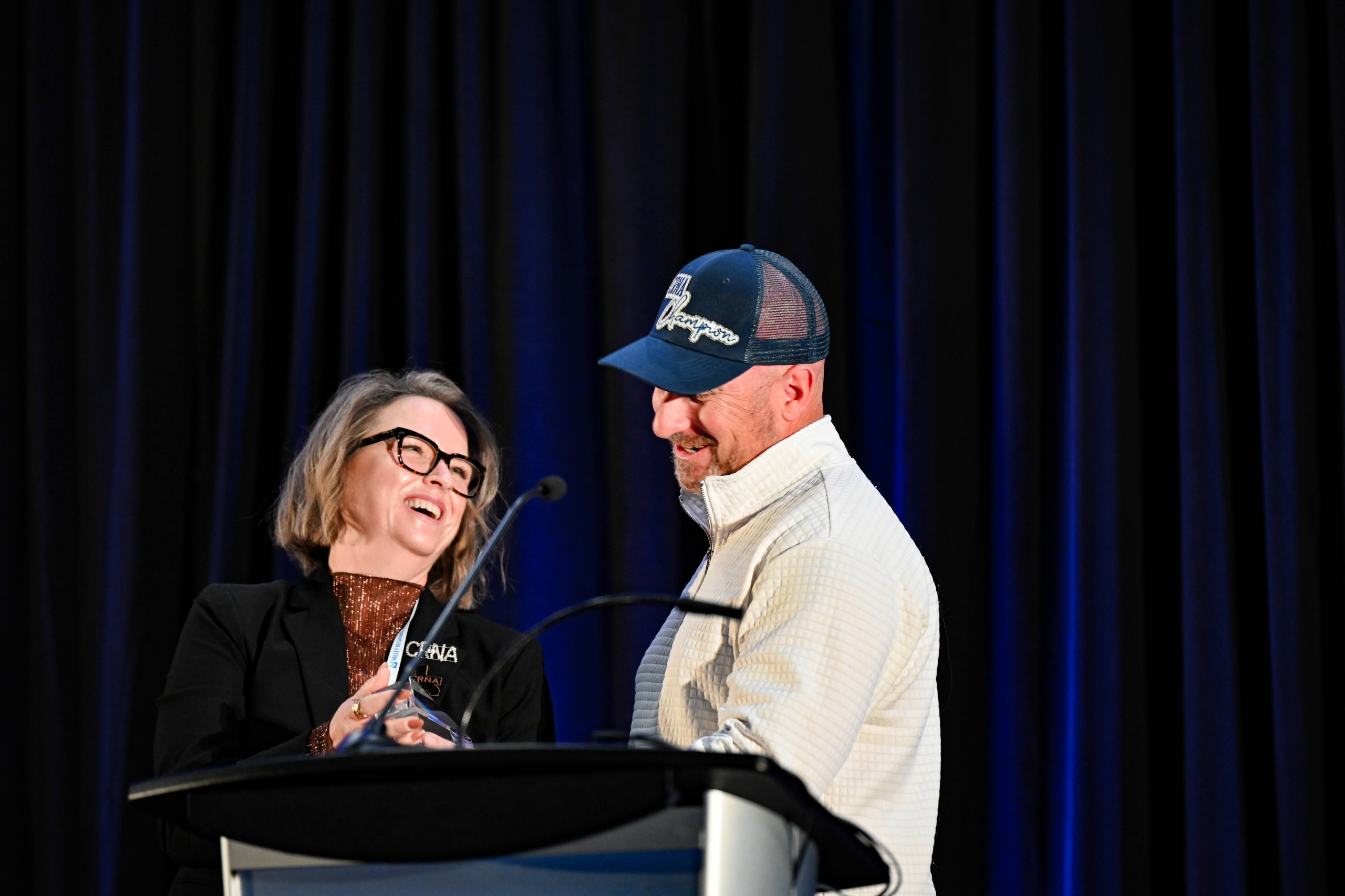CANA to host California Rural Healthcare Symposium during CRNA Week 2026
California legislators and stakeholders are invited to this free educational event on Jan. 21, 2026 to examine rural healthcare delivery in California, with a focus on access to anesthesia care, workforce sustainability, and policy strategies that strengthen health equity in underserved communities.
First CRNA Published in American Society of Echocardiography ‘Echo’ Magazine: Dr. Gabot, DNP, CRNA, FAANA
Congratulations to Dr. Mark Gabot, DNP, CRNA, FAANA, Kaiser Permanente School of Anesthesia faculty member, for being the first CRNA to be published in the American Society of Echocardiography’s ‘Echo’ magazine. His article “The Expanding Role of CRNAs in Perioperative Focused Cardiac Ultrasound: Education, Implementation, and Impact” is linked here.
Western Summit for Nurse Anesthesiology Unites Thirteen State Associations and Honors Assemblymember Heath Flora for His Leadership
CANA is proud to announce the success of the inaugural Western Summit for Nurse Anesthesiology, hosted by CANA in collaboration with Western AANA State Associations. Held in Las Vegas, Nevada from October 3-5, 2025, the Summit convened nearly 1,000 attendees, including Certified Registered Nurse Anesthetists (CRNAs), Nurse Anesthesia Residents (NARs), and Registered Nurses (RNs) from 13 participating state associations.
Patient Information
Who can administer anesthesia? What are the different types of anesthesia? Is anesthesia safe? Find answers to commonly asked questions here.











